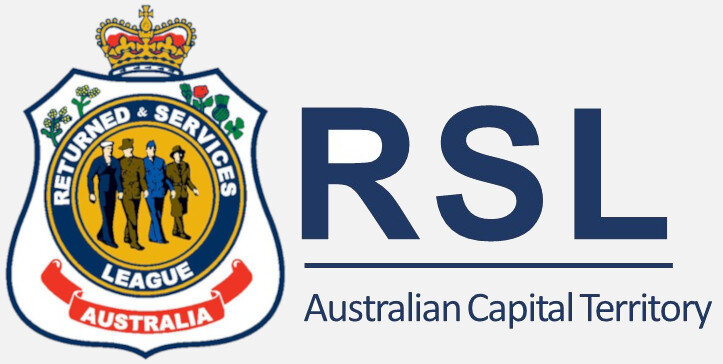10 Ways to Boost Your Career in 2024
Breathe fresh life into your civilian career in 2024. Here’s how.
As the calendar flicks over to a new year it can be a great opportunity to take stock and plan changes for the future. If you’ve been feeling a little stuck or stale in your civilian career, this article offers a few practical ways reboot your professional life in 2024.
As an Australian military veteran, you've got a wealth of experience and skills under your belt and the civilian world has so much to offer you in return. It's about finding the right fit and making the most of what you bring to the table.
Linking in with a service like the RSL Veterans’ Employment Program is a great first step to turbocharging your career. From career navigation and training pathways to preparing job interviews and introducing you to employers looking to hire, this free service has much to offer veterans.
But first, let's explore 10 solid and actionable ways to supercharge your civilian career or pivot towards new horizons. Ready to make 2024 your year of professional growth? Let's dive in!
1. Utilise Transition Support Services
Access government or non-profit programs that provide support specifically for veterans transitioning to civilian life, like the RSL Veterans’ Employment Program. These services include career counselling, workshops on resume writing, and job search strategies. They understand the unique challenges faced by veterans and can offer specialised guidance.
2. Get Qualified
Further education or certifications can make a significant difference. Consider courses or training that align with your career interests. Many Australian institutions offer credits for military experience and have special programs for veterans, including scholarships and flexible learning options. TAFE also offers a variety of fee-free courses, which we cover in detail in this article.
3. Network Actively
Building a professional network is crucial. Attend industry-specific events, join professional associations, and use platforms like LinkedIn to connect with peers and industry leaders. We explain why LinkedIn is a vital tool for veterans in this article. Networking with fellow veterans who have successfully transitioned can provide invaluable advice and connections. More tips on how to effectively network as a veteran here.
4. Translate Military Skills to Civilian Terms
Articulate your military skills in a way that resonates with civilian employers. Highlight transferable skills such as leadership, teamwork, strategic planning, and crisis management. Tailor your resume and interview responses to demonstrate how these skills can benefit potential employers. See our tips for translating military experience here.
5. Find a Mentor
A mentor who has navigated the transition successfully can offer practical advice, emotional support, and industry insights. They can help you understand civilian workplace culture and expectations, and provide networking opportunities.
6. Explore Government Employment
The Australian government often seeks the unique skills that veterans possess. Many government roles value the discipline, leadership, and strategic thinking developed in the military. Explore opportunities in defence, security, and other government sectors where your skills are particularly relevant. If you’re interested in moving into the public service, check out the Australian Public Service (APS) Veteran Employment Pathway.
7. Leverage Veteran-Specific Job Platforms
Utilise job platforms and recruitment services dedicated to helping veterans find employment, like the RSL Veterans’ Employment Program. These platforms connect veterans with employers who appreciate the skills and experiences that military service brings.
8. Embrace Continuous Learning
Staying ahead in your career involves a commitment to continuous learning and keeping up with the latest industry trends and technologies. This can be achieved through various means, such as enrolling in online courses, reading industry publications, attending networking events and conferences, joining professional associations, listening to relevant podcasts, participating in social media groups, acquiring new certifications, taking formal education courses, and undertaking personal projects. These activities not only enhance your skills and knowledge but also demonstrate your dedication to personal and professional growth, making you a more valuable asset in the ever-evolving civilian workforce.
9. Focus on Soft Skills
In addition to your technical abilities, emphasise soft skills like adaptability, effective communication, and leadership. These skills are often a differentiator and highly sought after by employers in various industries. Veterans are known to possess highly desirable soft skills honed through military service. Read more about the types of soft skills you might have in your arsenal – and how to communicate effectively them in your CV – in this article.
10. Prioritise Your Wellbeing
The transition to a new career can be stressful. It’s important to look after your mental and physical health. Seek support when needed, and strive for a healthy work-life balance to ensure long-term career satisfaction and success. We dive into more detail on balancing work and mental wellbeing as a veteran in this article.
Embracing a new chapter in your life after military service is not just about change; it's about discovering a world of opportunities waiting for you. As an Australian veteran, the skills, discipline, and experiences you've nurtured during your service are more than just commendable; they are invaluable assets in the civilian workforce.
As you step into 2024, remember that this journey is about bringing your unique strengths and perspectives to a new arena. Your military background hasn't just prepared you for this; it has set you up to thrive. Each skill you possess and every experience you've encountered is a unique asset, opening doors to rewarding and fulfilling civilian careers.
The RSL Veterans’ Employment Program can help
If you’d like a helping hand to boost your career in 2024, reach out to the RSL Veterans’ Employment Program. It’s free for veterans, their partners, and their immediate family members. Make the move today as registrations for this program are closing on the 17th May, 2024.
Want to see more content like this? Check out all our veterans’ employment articles here.


